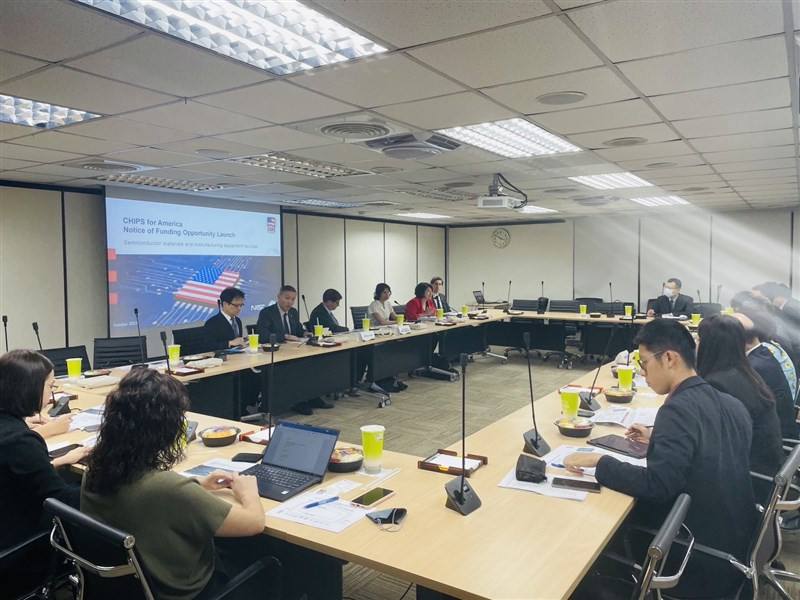
|
Getting your Trinity Audio player ready...
|
Taiwan was visited by American officials from the CHIPS Program Office (CPO) as part of a broader regional tour, where they discussed funding opportunities for investments in the United States. The American Institute in Taiwan (AIT) made this announcement, shedding light on the mission’s importance and its implications for the digital economy.

This visit carries significant weight in the world of semiconductors, given Taiwan’s pivotal role in the global semiconductor industry. The primary goal was to elucidate recent developments related to the Notice of Funding Opportunity (NOFO) released on 29 September 2023. This NOFO is a critical component of the CHIPS Act and the Science Act, which were signed into law by U.S. President Joe Biden in 2022.
The CHIPS Act, officially known as the Creating Helpful Incentives to Produce Semiconductors for America’s Future Act, is designed to boost domestic semiconductor manufacturing and fortify the nation’s semiconductor supply chain. At its core, the CHIPS Act seeks to address the ongoing semiconductor shortage while ensuring the U.S. remains competitive in the global semiconductor landscape.
However, in the wake of the CHIPS Act’s passage, there has been some ambiguity surrounding the eligibility of various companies to receive subsidies under the act. This uncertainty is especially relevant for semiconductor material and equipment suppliers.
The NOFO aims to clear the air by specifying that companies eligible for subsidies are those that can demonstrate their ability to “construct, expand, or modernise a facility relating to the fabrication, assembly, testing, advanced packaging, production, or research and development of semiconductors, materials used to manufacture semiconductors, or semiconductor manufacturing equipment.”
In addition, Commerce Secretary Gina Raimondo has expressed the need to streamline the process for new projects and make it more efficient and user-friendly. What ties this all together is the connection between the CHIPS Act and Taiwan, a nation known for its crucial role in the digital economy.
Taiwan is home to one of the world’s largest and most advanced semiconductor foundries and stands as a linchpin supplier for many U.S. technology companies, providing the advanced chips that power an array of digital technologies, from smartphones to computers and automotive systems.
The U.S. relies on this as well as the other international semiconductor manufacturers to meet its demand for cutting-edge chips. It’s a symbiotic relationship wherein the U.S. requires these companies for technological advancement while these manufacturers rely on the US market to sustain their businesses. The collaboration extends beyond borders, and the mutual success of U.S. tech giants and Taiwanese semiconductor companies highlights the interdependence of the global tech ecosystem.
The significance of Taiwan in the digital economy and semiconductor manufacturing cannot be overstated. Any shifts in US policy concerning semiconductors can have far-reaching implications for Taiwan’s semiconductor industry and the broader global supply chain. The U.S. government’s efforts to bolster its semiconductor capabilities, engage with international allies, and address issues such as chip shortages and security concerns inevitably have indirect consequences for Taiwan’s semiconductor ecosystem.
The CHIPS Act, with its goal of enhancing domestic semiconductor manufacturing, reflects the US’ commitment to securing its technological future. Taiwan’s pivotal role in this industry and its contributions to the digital economy reinforce the interconnectedness of the global tech landscape, where cooperation and collaboration are essential for continued innovation and progress. As the semiconductor saga unfolds, the world watches with bated breath, aware that developments in this sphere resonate far beyond national borders.
















